DePaul Faculty Council holds impromptu meeting to discuss fall quarter
Eric Henry for The DePaulia
The statue of John J. Egan, located outside of the Lincoln Park Student Center, wearing a mask.
DePaul Faculty Council hosted an impromptu meeting Wednesday discussing what the upcoming fall quarter could look like considering the rising number of COVID-19 cases in Chicago.
Members discussed necessary health and safety precautions for returning to campus as well as the continuation of the Pass/D/Fail grading system for all students, put in place in spring quarter to ease some of the strain put on students during the pandemic.
“[DePaul has] had two [cases] this week,” said faculty council member Craig Klugman. Klugman made a presentation about Chicago’s current status of COVID-19 and what it would look like this coming fall.
One of the positive cases was a student living with a non-DePaul student who was infected, according to Klugman. The other positive case was also a DePaul student. According to Klugman, the city of Chicago currently has a positivity rate of 6.1 percent, up from 4.6 percent at the end of July and 3.4 percent when campus was vacated.
However, students could return to campus in two weeks, with 500 of the students coming will be from states with imposed travel bans, according to interim provost Salma Ghanem
Members addressed their concerns over the quarantine sites.
“We should be ok,” Klugman said about student quarantine facilities.
Klugman also said testing should take place for students from hotspot states five to nine days after they arrive, as testing right away could have misleading results. They will also need to isolate for one to two weeks. Test results also take a minimum of one week of getting back. Yet, all students, faculty and staff on campus must do frequent reporting.
There will be a health and safety pledge for students to sign as well as an app called Campus Clear, now available on the app store, where anyone can report symptoms. There will also be a COVID-education module implemented.
Aside from reporting symptoms, anyone on campus is required to wear a mask.
“Students, faculty, staff will be required to wear a mask on campus,” Ghanem said.
Masks will be provided if forgotten and if anyone shows refusal, security will be called. There will also be plexiglass installments if six foot social distancing cannot be achieved during contact with sanitizing stations all over campus. Elevators will also be equipped with air cleaning systems in both campuses.
However, there were still overall concerns around the pandemic and how it’s being handled in Lincoln Park. Klugman addressed how CPS and Catholic schools in Chicago will be starting off the year online and that the dominant age range of catching COVID-19 is between 10 and 29. Paeth also visited Lincoln Park and saw children in the playground without masks, which prompted his decision not to send his children back to Lincoln Park’s high school for the fall.
Ghanem said there will be a more concise update regarding the return to campus on August 12.
Since the pandemic has not subsided since its initial implementation, further university-wide use of the Pass/D/Fail grading system resolution was proposed. Kristina Fluty, chair of the committee on academic policy, sponsored the discussion about continuing this module in the fall. Faculty Council member Caryn Chaden noted that the Pass/Fail grading system was originally for transfer students, according to state law, but would be easier if it applied to all students of all majors.
“If we vote ‘no’ [on the resolution], SGA will catch wind of it very quickly,” Chaden said.
The resolution went through with 30 in favor, none opposed and one abstained.
Members also ensured further collaboration with the Faculty Council Diversity Committee. The committee, established last November to promote diversity among the faculty, suggested ways other faculty members could help provide data in supporting diversity in faculty, curriculum, pathways and opportunities for leadership, and more.
“None of the data requested has any personal ramifications,” said Valerie Johnson, one of the sponsors for the committee.
Other sponsors are Vice President Sonia Soltero and Quinetta Shelby.
The resolution passed with 27 in favor, none opposed and seven abstained.
The council also provided updates on the library’s circulation during the pandemic and prospects for the future. The library had operations fully online until July 20. Members asked questions on why options like curbside pickup weren’t available, and library staff addressed the lack of communication that had been stemming from 2018.
“There was no central point of communication,” said Megan Heffman on library operations this past quarter.
The resolution passed to safely resume essential services and promote future communication with the library: 31 in favor, zero opposed and zero abstained.
Those who were deemed faculty council members as of June or prior were allowed to vote. There were 85 attendees.


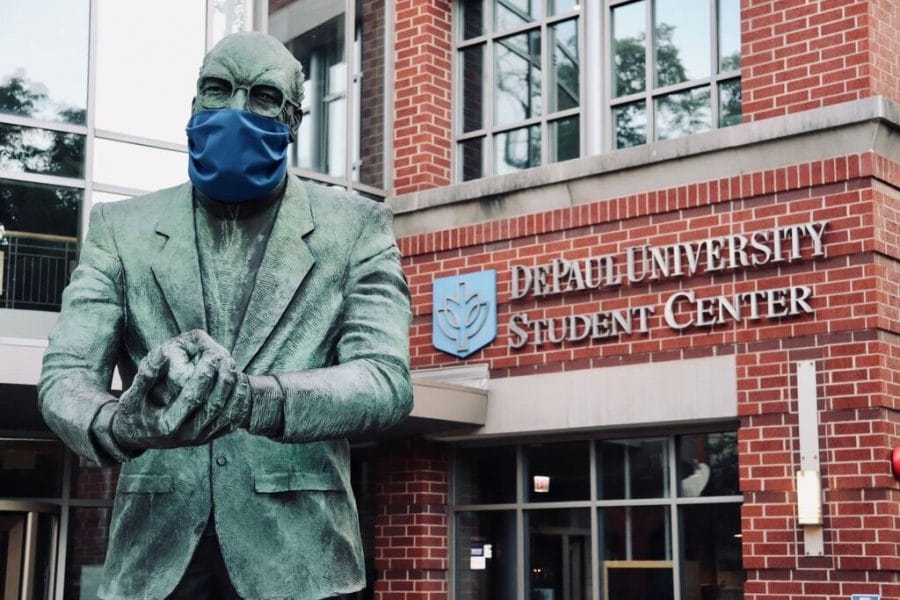
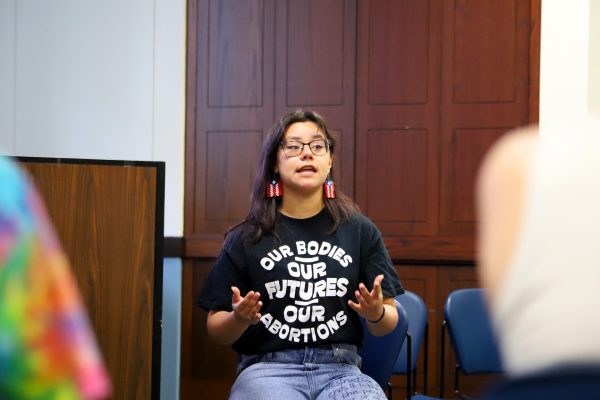

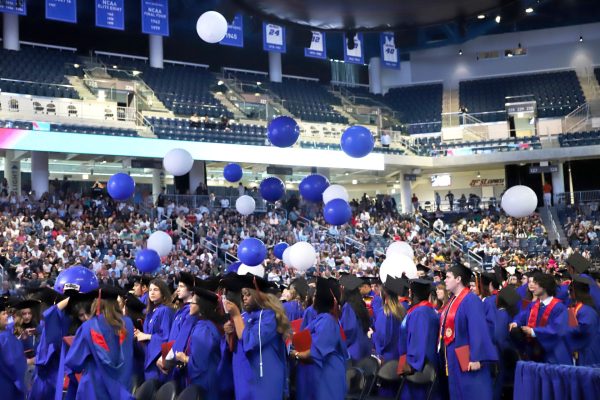
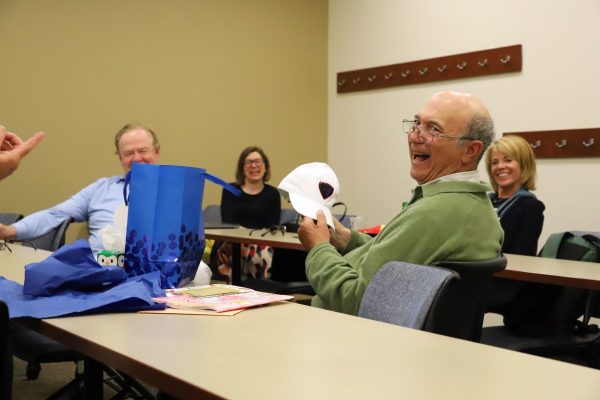
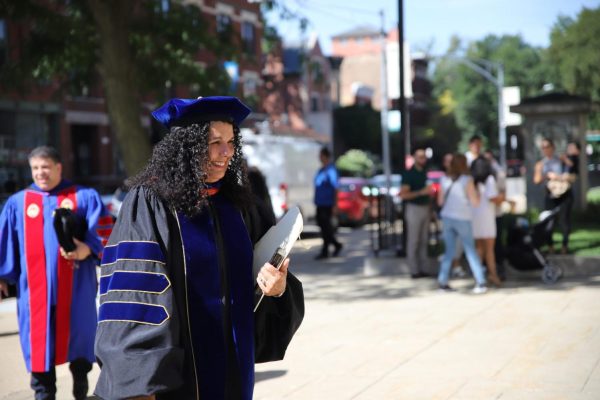

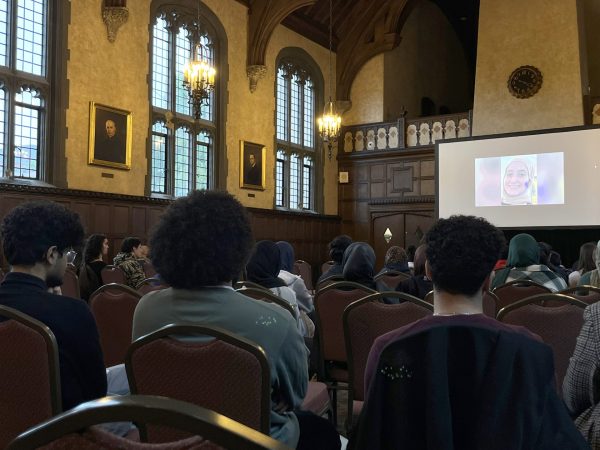
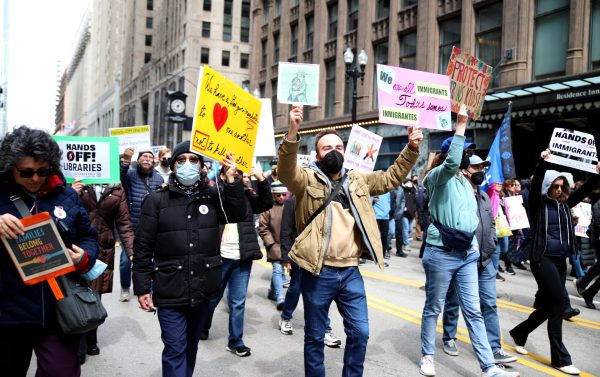
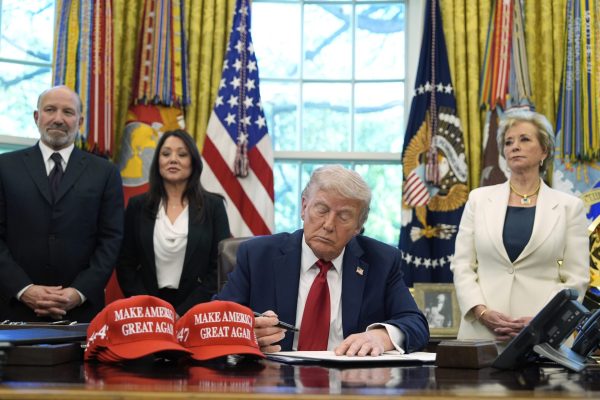
Lisa / Aug 15, 2020 at 6:25 am
“There was no central point of communication,” said Megan Heffman on library operations this past quarter.
I had to read this twice and still don’t understand. The last time I checked, email is still in full operation, and it’s not hard to identify relevant stakeholders and start a conversation or set up an e-meeting.
Things like this are why I don’t give money to my alma mater. I work too hard for my money to donate it to institutions that allow willful helplessness like this.
Harry Brown / Aug 9, 2020 at 9:41 am
Weekly testing would be outrageous. Not saying its not a good idea but do you know how many tests would be needed for weekly tests? I would say have students bring in a test before classes start but not weekly. After that, they can just take their temperatures during their first class daily and wash they’re hands and keep their masks on the whole time on campus
Carolyn Hawk / Aug 6, 2020 at 10:49 am
Testing site on campus.
Wendy Sparks / Aug 6, 2020 at 6:59 am
I am a health care provider . I agree there needs to be testing sites on campus . Students should be tested before school starts . This is not full proof , but we are finding asymptomatic carriers . Other universities are sending tests and the students have to send them to a lab a week before school starts . This way you can catch some of the asymptomatic students and they can quarantine .
Masks have to be enforced and students need to social distance in class ,incorporating smaller classrooms and labs. All classrooms and labs need to be cleaned with approved solutions after every class.
Annie McManus / Aug 5, 2020 at 11:31 pm
I have read through the safety pledge and while it is a good start, the safest way to bring kids back to campus is to have them get regular Covid tests. There should be a testing site dedicated to students, faculty, and staff at DePaul. All members of the DePaul community should be tested weekly. Weekly testing would catch cases early, make others aware of their exposure risks and more quickly move a person who tests positive to a quarantine location.
Please reach out to the researchers at U of I in Champaign-Urbana to discuss their saliva test. They are interested in sharing their information and having the test used widely.
Thank you for your time,
Annie McManus
Parent of an incoming freshman